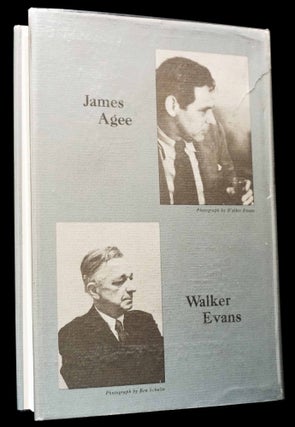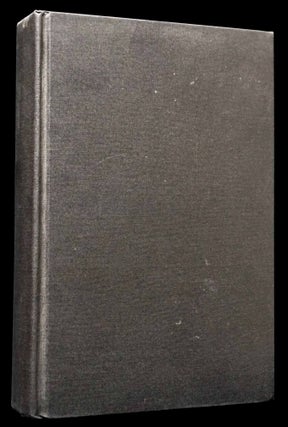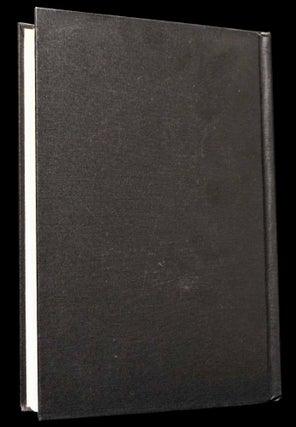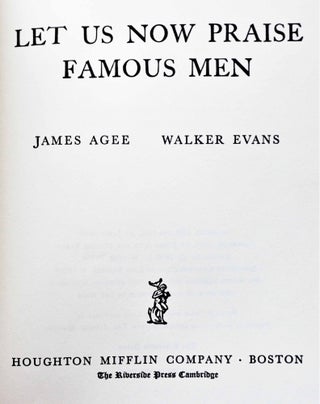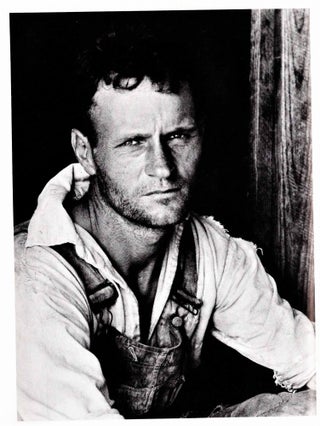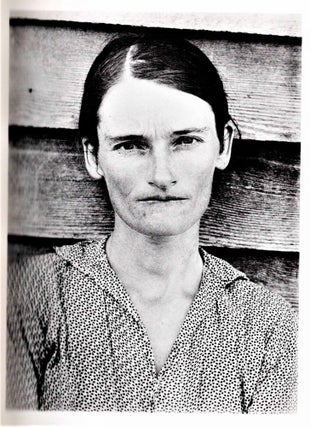Let Us Now Praise Famous Men (Revised Edition)
Boston, MA: Houghton Mifflin / The Riverside Press, 1941 (1960). First Edition Thus. Hardcover. "In the summer of 1936, James Agee and Walker Evans were sent on a journalistic assignment to discover and disclose the actual daily lives of typical sharecropper families in the South. They found and lived with three families for one month, and put together words and photographs that were eloquent, original, and devastating. 'Let Us Now Praise Famous Men' was immediately hailed by some as cruel, repetitious, crazy; by others as fresh, intensely moving, overwhelming, accurately poetic writing. 'I must say to you, this is not a work of art or of entertainment,' wrote Agee in his preface to a book that began as journalism and ended up as literature. 'Let Us Now Praise Famous Men,' a poetic tract for its times, an outpouring of young genius during the exciting period of American liberalism and reform, now takes its place in the tradition that runs through Thoreau, Melville, Walt Whitman, Thomas Wolfe.' "(Abridged Quote from Front & Back Flap). Offered here is one of the best First Edition Thus-es money can buy, the 1960 publication of Pulitzer Prize-winning screenwriter and novelist James Agee and noted photographer and transcontinental bohemian Walker Evans. Agee has his devotees (of which this author confesses to be one--the blurb comparisons to the impassioned, exuberant, and musical writing of Thoreau, Whitman & Wolfe is remarkably accurate) and Evans, too has been respected and collected by museums for decades, although being seldom spoken of today. Despite this, Evans is a remarkably interesting figure, for example: he spent a year in Paris in 1926, and upon returning to New York City befriended the likes of John Cheever and Hart Crane. He took up photography in 1928, two years later publishing three photographs of the Brooklyn Bridge in the original edition of Hart Crane's 1930 masterwork "The Bridge." In 1933, he went to Cuba on assignment for the publishing house Lippincott, where he drank nightly with Ernest Hemingway for two weeks; Hemingway liked Evans so much that he gave him money to stay in Cuba and additional week so they could spend more time hanging out, drinking and talking. Evans, in turn, assisted Hemingway with acquiring photos from newspaper archives that would later help Hemingway with his 1937 work "To Have and Have Not." There are two features that--if you combine the collecting gene with the will-to-learning gene--make this edition so worth one's time: they are the expanded suite of Walker Evans' legendary photos which begin the work [62 instead of the original 31; two of which we scanned to provide examples] and his sagacious, remarkably well-written introduction, "James Agee in 1936." Let's take a peek at a few gemlike statements from the Evans introduction: "He talked his prose, Agee prose...Like many born writers who are floating in the illusory amplitude of their youth, Agee did a great deal of writing in the air. Often you had the impulse to gag him and tie a pen to his hand. That wasn't necessary; he was an exception among talking writers. He wrote--devotedly and incessantly...Agee worked in what looked like a rush and a rage. In Alabama he was possessed with the business, jamming it all into the days and the nights. He must not have slept...he sweated and scratched with submerged glee." Just like the original edition, it does contain Agee's own preface to the work, as well. Though set firmly in the Depression-era, American South, the problems which the book alludes to have not been entirely alleviated--even in our age of ever-evolving technological advancement. Appalachia and the South still suffer in manners which greatly echo those covered in this masterwork of literary journalism, finding their most recent depictions in documentaries like Ashley York's "Hillbilly" (2018) and J.D. Vance's "Hillbilly Elegy" (New York, NY: Harper Press, 2016). These works are all preceded by this canonical and seminal forefather, Agee & Evans indisputably masterful "Let Us Now Praise Famous Men." Hardcover in clipped dust jacket, revised First Edition Thus. Book in very fine condition with only spotting to topmost text block (not affecting any open-facing pages themselves) and typical age-toning to publisher's binding glue at same; else gorgeously well-kept. Unrestored dust-jacket in strong near fine condition with only slight shelf-wear, chipping to fine-edges esp. at corners; small, faint ring [see pictures] running through the word "Praise" on front cover; spot at top left-hand corner of same; tiny vertical crease near topmost fine-edge at center-middle; moderate shelf-wear to topmost, bottommost fine-edges of spine, small, flattened crease near topmost fine-edge of same; flattened closed tear at top right hand corner/fine-edge [see photo] which extends (largely innocuously) into author photo of Agee with drink in hand. An extra handling charge will be added for shipping due to the weight of this item. Very Fine. [Item #4564]
Price: $80.00


![[Item #4564] Let Us Now Praise Famous Men (Revised Edition). James Agee, Walker Evans.](https://thirdmindbooks.cdn.bibliopolis.com/pictures/4564.jpg?width=768&height=1000&fit=bounds&auto=webp&v=1628631157)
